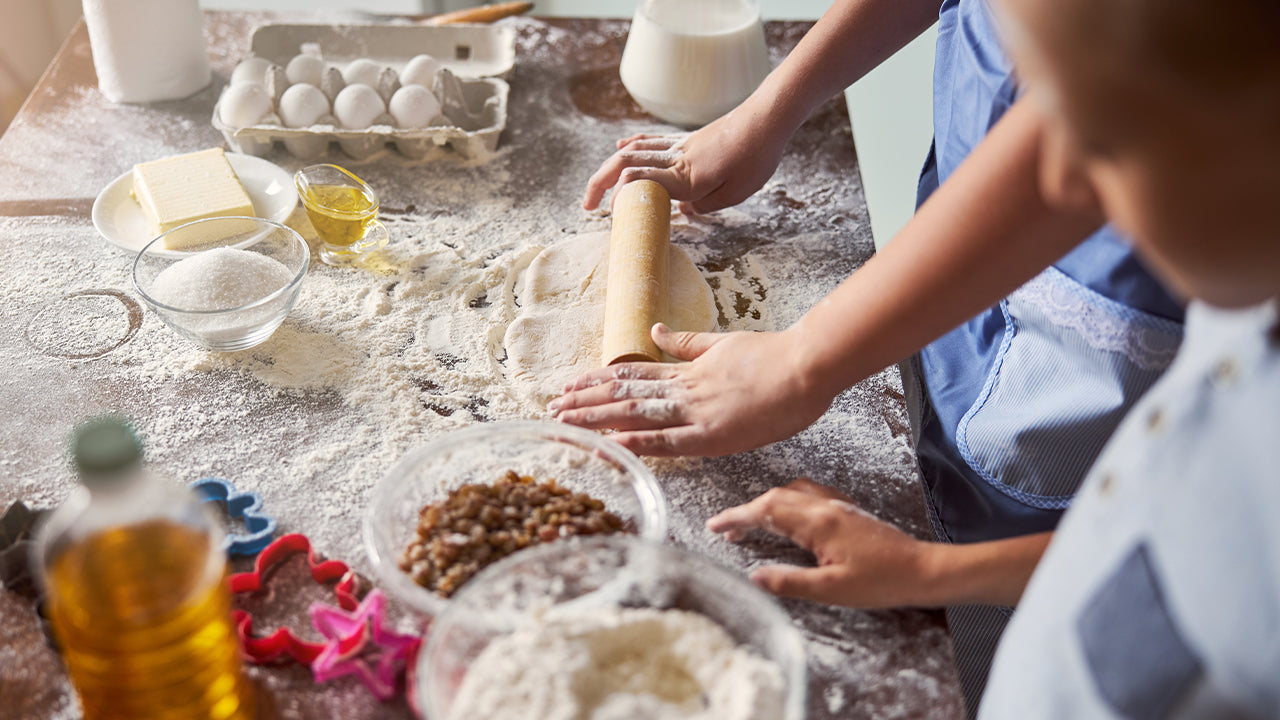Your Cart
Cart Items

Continue shopping
We are looking for the best offers for you...

In today’s fast-paced world, anxiety and stress can result from a myriad of sources. From tight work deadlines to personal responsibilities to the constant bombardment of information from the internet, it’s easy to get overwhelmed with excessive worry.
When one is anxious and stressed, it’s difficult to concentrate, make the right decisions, and complete even simple tasks. In addition, anxiety brings fear of judgment, discouraging one from engaging in social activities. Worse still, it can cause headaches, muscle tension, fatigue, digestive issues, and compromised immune function.
Although there are different ways of treating anxiety, including medication, therapy, and meditation, combining them with hobbies for anxiety reduction can bring lasting improvement. Here, we’ll explore the hobbies that can help manage anxiety.
Hobbies are fun activities outside one’s occupation done during leisure time. But they are more than pastimes. According to research, these activities have emotional and mental benefits. Occupying the mind with activities that bring pleasure acts as a distraction from stressors. As a result, you can enjoy temporary relief from anxiety symptoms, allowing you to experience moments of relaxation and calm.
A fun hobby can offer a creative outlet for self-expression. Besides providing positive emotions, creativity increases one’s problem-solving skills. Lastly, the ability to create something out of a hobby gives someone a sense of achievement, building a positive mindset that extends to other areas of life.
Setting aside some time for hobbies can come along with the following benefits:
Overall, hobbies enhance mental health, equipping individuals with the resilience to cope with symptoms of anxiety and stress effectively.
Although hobbies won’t automatically solve your anxiety and stress, incorporating them into your wellness routine can enhance your recovery. Here is a list of nine hobbies that help manage anxiety.

Cooking and baking require a significant level of focus and creativity to make a meal that is not only delicious but also visually appealing. The chopping, stirring, smelling, and tasting involves all five senses, serving as a distraction from anxiety.
Moreover, the tangible outcomes of cooking and baking give a sense of satisfaction and accomplishment. As a result, this boosts self-esteem and confidence, counteracting the negative feelings of anxiety. If you don’t know how to cook, you can join online classes and follow along with the instructor.

Engaging with nature through hiking, gardening, swimming, cycling, or taking walks breaks the monotony of staying enclosed in the house or office. The sights and the outdoor sounds of chirping birds and rustling leaves soothe the mind and promote a sense of peace and relaxation. In fact, research shows that having frequent nature visits reduces stress, anxiety, and depression.
In addition, exposure to sunlight allows the body to absorb vitamin D, which plays a crucial role in regulating mood and warding off depression. Physical activities also cause the body to release feel-good hormones such as endorphins, reducing feelings of anxiety and agitation.

Besides their slow, rhythmic movements, an aquarium with moving fish produces soft sounds that calm the mind. Watching fish swim has been shown to have soothing effects on the nervous system, decreasing blood pressure and heart rate.
Maintaining an aquarium gives you a sense of responsibility. Moreover, feeding, cleaning, and monitoring water quality can be a source of distraction from stressors. If this sounds like something you'd like to do, here are a few tips for creating and maintaining an aquarium:

Photography is not all about capturing images. It requires you to be present at the moment and pay attention to your surroundings with heightened awareness; observing the interplay of light and shadow or capturing intricate details of an object encourages mindfulness. In addition, through the viewfinder, ordinary objects can be transformed into extraordinary subjects, allowing you to see the world from different perspectives.
If you are looking to explore this hobby, starting with nature or everyday objects can be a great way to develop skills.

Music is known to have a profound effect on the mind. The notes and rhythm increase blood flow to the limbic system in the brain, which helps to process emotions. Therefore, listening to a soothing or familiar song triggers the release of dopamine, which uplifts mood by giving feelings of pleasure and a sense of well-being.
The brain records memories of sounds from different songs, which allows your body to associate familiar music with pleasure. As such, learning how to play a musical instrument, going to concerts, and creating a suitable playlist can become hobbies that provide anxiety relief.

Yoga poses help to stretch your body and stimulate the brain to release gamma-aminobutyric acid, which gives off calming effects and helps to elevate mood. Meditation, on the other hand, trains your mind to be mindful of negative thoughts while resisting the impulse to act on them.
To start a yoga and meditation routine, you can start practicing in your house and use videos to guide you or enroll in any reputable local classes. Using calming patches can increase the benefits of yoga. These stickers have essential oils, which provide soothing aromas to help calm and focus the brain by facilitating the release of endorphins.

Art acts as a form of therapy to counter anxiety and feelings of stress. Creating art requires individuals to be fully engrossed in the process, which distracts the mind from negative thoughts.
Artistic expression also helps to release pent-up emotions, which leads to the production of feel-good hormones and relief. You can engage in art using adult coloring books, drawing simple sketches, or manipulating modeling clay to craft items.
Incorporating sensory stickers in art projects goes a long way to assist individuals who are sensitive to sensory stimuli. These stickers act as tactile elements that help in focusing and expressing emotions.

Journaling creates a safe space to express anxiety in writing. This helps you to process and understand disturbing thoughts, making it possible to cope with stress.
Contrary to popular belief, writing doesn’t have to be systematic; you can write whatever you want. However, to deal with stress feelings, you can focus on encouraging yourself and expressing gratitude.
With that said, journaling can also be a source of anxiety, especially when searching for the right words to use or where to start. To curb this, you can use fidget stickers to help you focus and narrow down your thoughts.

As much as volunteering aims at helping others, it also has personal mental health benefits. The activities involved keep you moving and thinking, which takes away focus from your own worry and anxiety. You also feel a sense of worth and meaning in helping others, leading to relief and relaxation.
Depending on your interests and goals, you can volunteer in hospitals, hospice centers, prisons, orphanages, animal zoos, or community centers around you.
The importance of hobbies in helping to deal with anxiety symptoms cannot be overstated. However, with so many of them available, how do you integrate them into your daily routine? Here are tips to use:
Even though hobbies help to reduce anxiety and calm the mind, creating the right environment to engage in them can be challenging. Nonetheless, you can use Mind and Body Wellness Patches to assist you in getting settled.
These patches contain blends of essential oils such as bergamot and peppermint that aid in improving your focus and promoting a calm mood. It is advisable to apply them before starting an activity for a better experience.
Although hobbies are not a substitute for professional treatment, incorporating them into your routine offers a host of mental health benefits. They reduce stress, improve mood, promote mindfulness, give a sense of achievement, and build self-confidence.
As such, consider exploring new hobbies to fight anxiety and stress and improve your overall quality of life. You can also explore NatPat’s Health and Wellness Patches to help you better control your emotions and behavior.
Hobbies that allow you to express your thoughts and feelings can be beneficial for dealing with anxiety. These include drawing, painting, journaling, cooking, and gardening.
Exercises such as yoga, bike riding, hiking, and walking are great for dealing with stress and anxiety.
You can calm down anxiety by slowing down your breaths to lower your heartbeat, listening to soothing music, or engaging in a hobby.

Continue shopping
We are looking for the best offers for you...
